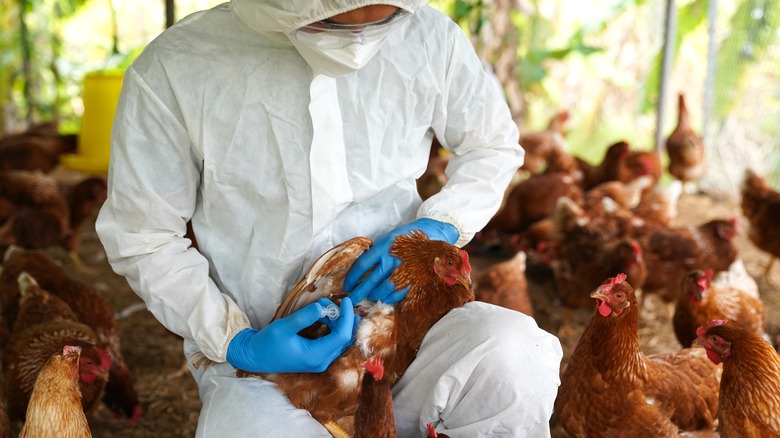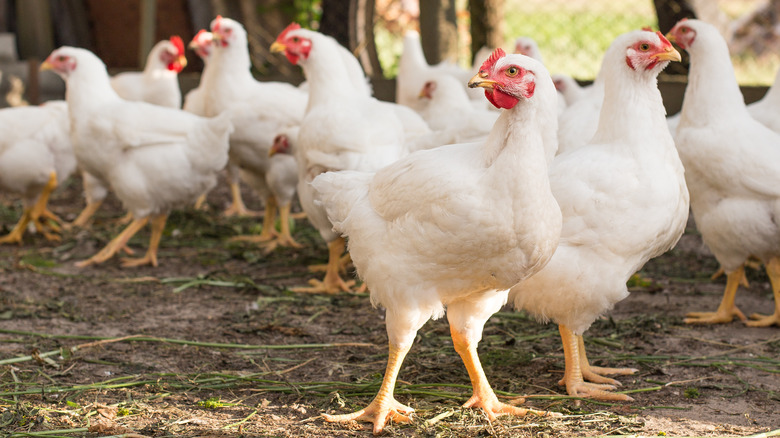The US Is Considering Mass Bird Flu Vaccinations For Poultry, But There's Opposition
The human pandemic (you know the one) has had its fair share of air time over the last three years. But another virus is affecting mass numbers of another species: birds. While the current death toll isn't enough to classify the avian influenza (also known as H5N1) as a pandemic, it's still the most significant bird flu in U.S. history.
A March 9 USDA report says that the virus has killed nearly 60 million farmed birds in 47 states in the last four months. Pennsylvania is taking the biggest hit, having lost more than 215,000 farmed and backyard birds in the last 30 days. The flu has had a huge impact on the price of eggs, which adds to the litany of other factors still contributing to inflation. In fact, eggs are so expensive right now that some people are buying their own chickens for the first time. Even more troubling is the impact of H5N1 on other mammals, including foxes, raccoons, and — in rare cases — humans.
Now, the Biden administration has announced a proposal to vaccinate millions of chickens to curb the spread of the virus. But not everyone is on board.
Trade associations are worried about poultry exports
The New York Times reports that in addition to launching the largest-scale poultry vaccination program in U.S. history, the Biden administration also wants to encourage individual farms to bolster their bio-risk management measures, including rolling out new disinfection procedures for staff.
In general, doctors and scientists are on the side of the vaccination plan. Avian influenza expert Robert G. Webster told the Times that the vaccination program could "prevent the inevitable transmission to humans."
But some people on the business side aren't so keen on the idea. Poultry trade associations believe a mass vaccination program could put the poultry export business at risk by fostering trade bans. "In terms of the feasibility of vaccination and how to do it, that's already proven," Rodrigo Gallardo, a poultry medicine professor at the University of California, Davis, told Food Dive. "It's more of a political problem."

